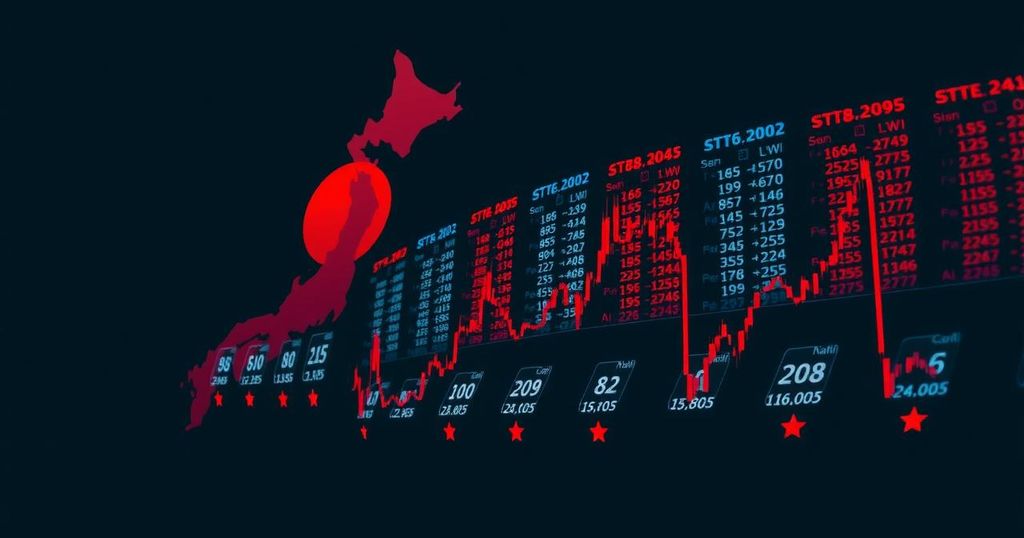Japan’s Cryptocurrency Sector Faces Uncertainty Amid Rate Hike Fears and Political Transitions
Recent developments have placed Japan’s cryptocurrency market in a precarious position, primarily due to escalating fears surrounding potential interest rate hikes by the Bank of Japan (BOJ). The specter of increased rates is eliciting concerns regarding further turmoil in the cryptocurrency sector, which has already witnessed significant volatility. Japan’s cryptocurrency market share has declined amid political transitions, notably with the impending departure of Prime Minister Fumio Kishida.
The global economic instability greatly impacts cryptocurrency valuations, particularly in light of anticipated monetary policy adjustments by the Federal Reserve. George Lagarias, Chief Economist at Forvis Mazars, has articulated that a proactive approach by the Federal Reserve in terms of rate cuts could precipitate considerable risks for the market. In this environment, Bank of Japan Governor Kazuo Ueda has confirmed a commitment to raising interest rates to align with projected economic conditions, a decision that could exacerbate market anxieties.
The repercussions of such monetary policy became evident on August 5, when Japan’s stock market experienced its most dramatic drop in 37 years, plummeting by 12% in just one day. This decline was significantly influenced by the carry trade strategy, which led investors to capitalize on Japan’s low-interest rates by borrowing yen and investing in higher-yielding U.S. assets. The aftermath was severe: technology giants like Apple and Nvidia registered notable declines, while the cryptocurrency market endured its most substantial single-day drop since early 2023. Bitcoin (BTC) and Ethereum (ETH) faced double-digit losses, while alternative currencies such as Solana and Dogecoin saw decreases of up to 30%. This mass liquidation resulted in approximately $1.14 billion in liquidations and the loss of nearly $600 billion in market capitalization.
In this challenging landscape, Japan’s cryptocurrency market appears to be on a downward trajectory. During a recent session with officials from the Liberal Democratic Party, Genki Oda, founder of SBI-owned BITPOINT and Chair of the Japan Cryptocurrency Exchange Association, delineated concerns regarding Japan’s waning influence in the global crypto arena. Oda underscored that Japan’s share of Bitcoin trading volume, which accounted for approximately 50% between 2017 and 2018, has significantly dwindled to only a fraction of the total by 2024. He expressed apprehension that strict tax regulations might further diminish the international competitiveness of Japan’s web3-related businesses.
In a proactive response to these challenges, Japan’s Financial Services Agency (FSA) submitted a proposal for tax reform on August 30, advocating the designation of cryptocurrency as a financial asset eligible for public investment. This adjustment could potentially clarify regulatory frameworks, alleviate tax burdens, and foster wider public engagement in digital asset investments.
Prime Minister Fumio Kishida’s recent announcement of his resignation in September adds another layer of uncertainty regarding the future of Japan’s economy and its impact on the cryptocurrency ecosystem. Kishida’s departure may mark the onset of significant policy shifts that could reshape both the broader financial landscape and the regulatory environment governing digital assets in Japan. It is imperative for stakeholders within the cryptocurrency market to remain vigilant as these developments unfold.








Post Comment